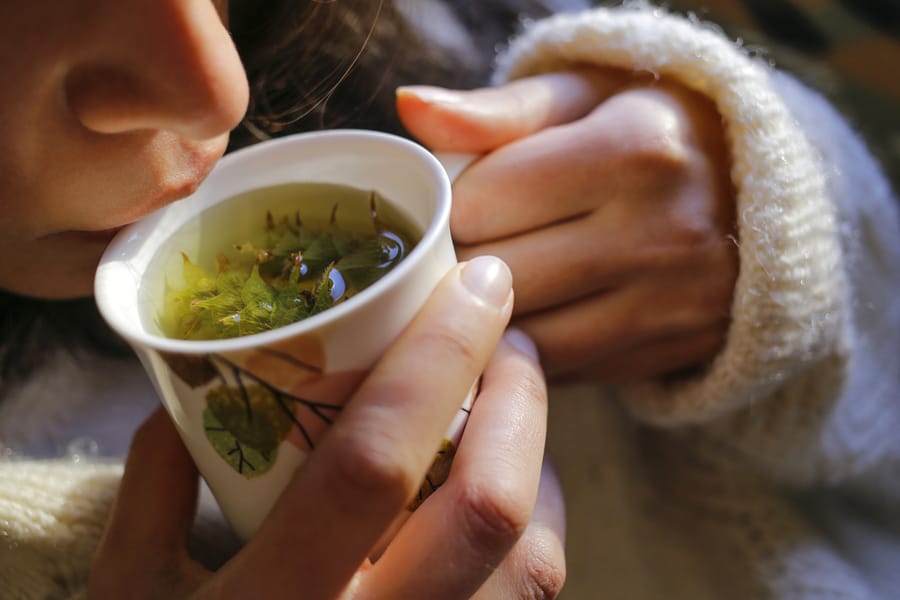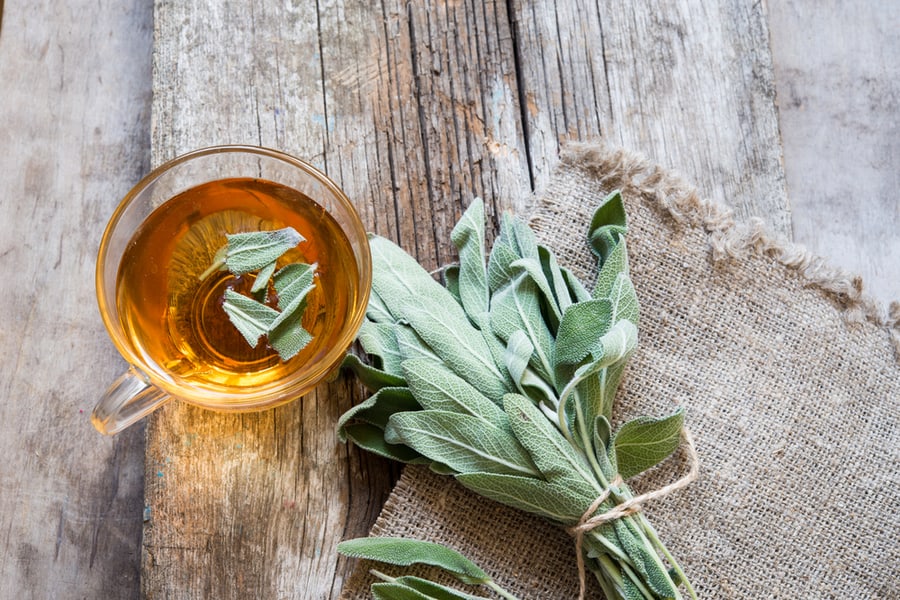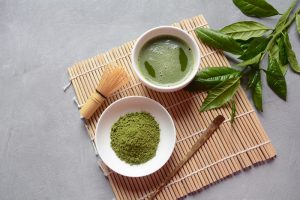
Sage (Salvia officinalis) has been around longer than you think. It dates back thousands of years, the ancient Egyptians used it for infertility, and it was also used in ancient Greece, Italy, China, and India for traditional medicine.
What makes this tea medicinal?
Sage contains a myriad of vitamins, and it’s most noted for its vitamin K and Iron. It also contains other helpful antioxidants like tannic acid, flavonoids, and carnosol. The benefits of sage tea are the same in sage oil or sage leaves.
If you need tea to help you unwind after a stressful day at work or something to replace your morning coffee with, sage tea is worth trying out. Drinking this tea can help with weight loss, memory, and much more.
But how much sage tea is safe to drink?
The recommended daily intake of sage tea is 3 to 6 cups. Anything more and it starts to get toxic because of a certain substance in sage tea.
Continue reading to find out why you shouldn’t drink too much sage tea, the benefits of this tea, and how to make the perfect sage tea.
Benefits of Drinking Sage Tea

Let’s go over the benefits of consuming this herbal tea. Some have been tested and proven, and others are just other people’s experiences.
Improves Memory
Sage tea has been proven to enhance cognitive ability. The vitamin K in it prevents the oxidation of brain cells and encourages brain activity.
Studies have also shown that sage improves memory function in people with Alzheimer’s.
Some people call sage tea Thinker’s Tea. It improves attention and aids focus, so it’ll be an excellent addition to your morning routine.
A popular hypothesis is that sage tea also helps with depression and grief, but not enough studies have been done on the subject.
It Has Anti-Inflammatory Properties
Researchers at the University of Vienna, Austria, discovered that sage has anti-inflammatory effects on the mouth, respiratory tract, gastrointestinal tract, and skin.
Sage tea is great for mouth and throat sores, so when you have a mouth or throat sore, consider gargling cold sage tea. Another study found that sage mouthwash effectively reduced gingival inflammation.
Alleviates Menopausal Symptoms
A 1998 and 2011 study both discovered that half of the subjects saw their hot flashes decrease after four weeks of taking sage tea. After eight weeks, two third of them saw a decrease.
Other studies have also proven that sage tea reduces night sweating and excessive sweating.
It Helps Skin and Hair
There hasn’t been adequate research about the effects of sage tea on skin and hair, so most of the benefits listed are what people have personally experienced.
People say soaking sage leaf in sage tea for thirty minutes and dabbing the leaf on your face after it’s cold can reduce oily skin.
The antibacterial properties of sage are also believed to help cure eczema, psoriasis, acne, and more.
For hair, the research that exists is attributed to sage oil. It’s said to help combat hair loss because of the beta-sitosterol present in it. Beta-sitosterol is mostly effective against male baldness.
Again, no research to back it up, but sage is said to thicken and darken the hair because of the tannins present.
May Prevent Cancer
There’s a correlation between sage tea and a reduced risk of cancer. Sage tea contains some anticancer compounds like rosmarinic acid and carnosol.
In animal studies, carnosol has been proven to kill malignant cells without affecting healthy cells. More research is necessary to know for sure.
Boosts Heart Health
Research has shown that sage tea is linked to improved cholesterol and triglyceride levels.
In a one-month study of 6 women, drinking 300ml of sage tea twice daily resulted in 20% lower bad cholesterol, 38% higher good cholesterol, and 16% lower total cholesterol.
Side Effects of Sage Tea

Sage tea is great overall, but like everything else, it can have some side effects. Here are some of them.
Allergies
You never know until you take sage tea. Some people are allergic to sage plants or mint plants in general.
If you have difficulty breathing, itchy throat, or rashes when you drink sage tea, consult your doctor to know if you’re allergic.
Estrogenic Effect
This simply means that sage tea can affect estrogen in women. It may dry up breast milk, so pregnant or breastfeeding women should steer clear of sage tea or take it in very little quantities.
If you also have a hormone-sensitive illness like breast cancer, drinking sage tea can worsen your condition. Consult your doctor if you’re nursing or ill to know if it’s safe for you to consume sage tea.
Consuming Unsafe Amounts of Thujone
Common sage has a neurotoxin called thujone. Thujone can be toxic, but sage has little amounts of it.
A study published in the July 2011 edition of Chemistry Central Journal says 3-6 cups of sage tea daily is appropriate and won’t reach the toxicology limit.
By cup, I mean the standard one-cup size and not the mega tea cup. Anything more, and you’ll be putting yourself at risk of poisoning, and it may cause vomiting, dizziness, and tremors.
How To Prepare Sage Tea

Now that you know all about sage tea, let’s get right into how to make this tea at home. You can brew sage tea with tea bags or sage leaves.
If you’re growing sage leaves in your garden, ensure they’re not exposed to pollution, and avoid using fertilizers or other chemicals for the most authentic flavor.
You’ll need 1 tsp. sage tea (tea bag or grounded leaves), 8 oz of water, and an optional sweetener.
Add the teaspoon of sage to a tea infuser. Put the infuser in your cup and pour hot water over it. Let it steep for 10 minutes or more, and taste your tea at intervals.
The longer you let it steep, the stronger flavor you’ll get. You can add lemon, mint sugar, or honey to taste.
Final Thoughts
Sage tea is a must-drink because of its health benefits. You can take it every morning to energize your day or after work to refresh your body and mind.
Remember not to take more than 6 cups a day. If you’re an avid tea drinker, you can mix sage with other teas and take as much as you like.









